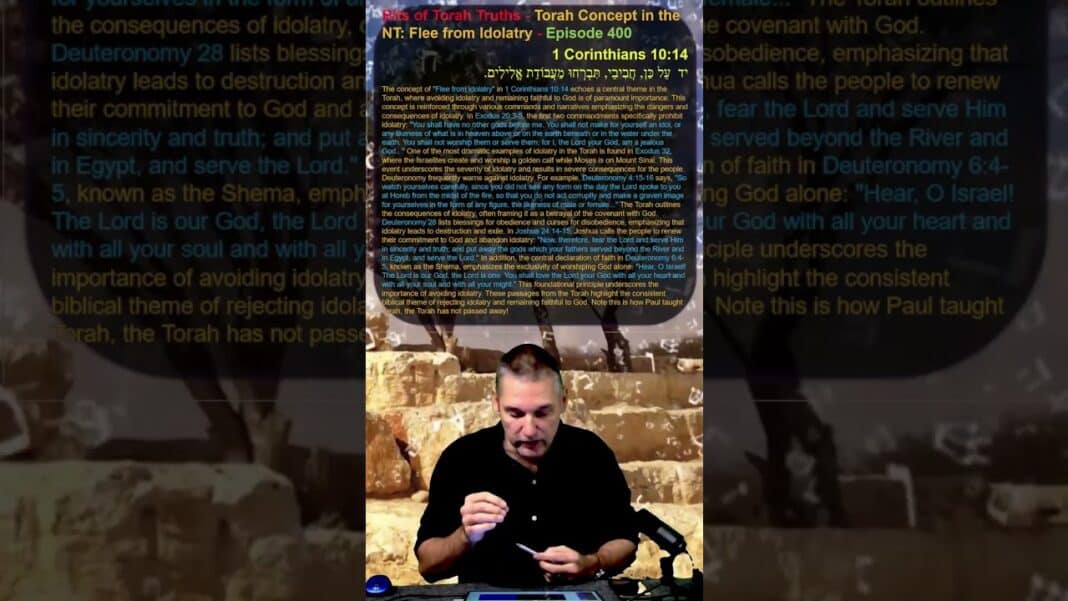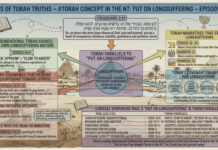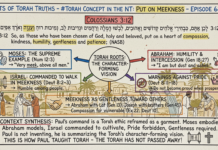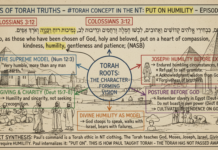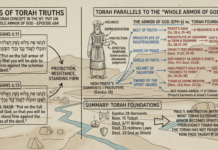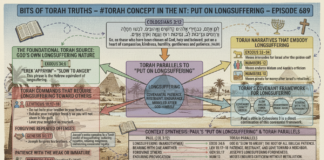Bits of Torah Truths – Torah Concept in the NT: Flee from Idolatry – Episode 400
#torah #torahwisdom #torahtruth #torahforlife #torah4you #torahtruth
1 Corinthians 10:14
10:14 Therefore, my beloved, flee from idolatry. (NASB)
https://www.matsati.com/index.php/category/bits-of-torah-truths/
1 Corinthians 10:14
יד עַל כֵּן, חֲבִיבַי, תִּבְרְחוּ מֵעֲבוֹדַת אֱלִילִים.
The concept of “Flee from idolatry” in 1 Corinthians 10:14 echoes a central theme in the Torah, where avoiding idolatry and remaining faithful to God is of paramount importance. This concept is reinforced through various commands and narratives emphasizing the dangers and consequences of idolatry. In Exodus 20:3-5, the first two commandments specifically prohibit idolatry: “You shall have no other gods before me. You shall not make for yourself an idol, or any likeness of what is in heaven above or on the earth beneath or in the water under the earth. You shall not worship them or serve them; for I, the Lord your God, am a jealous God…” One of the most dramatic examples of idolatry in the Torah is found in Exodus 32, where the Israelites create and worship a golden calf while Moses is on Mount Sinai. This event underscores the severity of idolatry and results in severe consequences for the people. Deuteronomy frequently warns against idolatry. For example, Deuteronomy 4:15-16 says, “So watch yourselves carefully, since you did not see any form on the day the Lord spoke to you at Horeb from the midst of the fire, so that you do not act corruptly and make a graven image for yourselves in the form of any figure, the likeness of male or female…” The Torah outlines the consequences of idolatry, often framing it as a betrayal of the covenant with God. Deuteronomy 28 lists blessings for obedience and curses for disobedience, emphasizing that idolatry leads to destruction and exile. In Joshua 24:14-15, Joshua calls the people to renew their commitment to God and abandon idolatry: “Now, therefore, fear the Lord and serve Him in sincerity and truth; and put away the gods which your fathers served beyond the River and in Egypt, and serve the Lord.” In addition, the central declaration of faith in Deuteronomy 6:4-5, known as the Shema, emphasizes the exclusivity of worshiping God alone: “Hear, O Israel! The Lord is our God, the Lord is one. You shall love the Lord your God with all your heart and with all your soul and with all your might.” This foundational principle underscores the importance of avoiding idolatry. These passages from the Torah highlight the consistent biblical theme of rejecting idolatry and remaining faithful to God. Note this is how Paul taught Torah, the Torah has not passed away!
